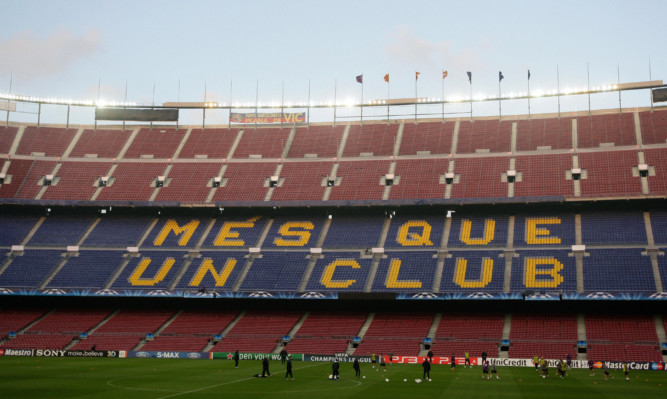Glasgow Celtic in their early days regularly held track cycling events at Parkhead and once hosted the world championships.
Today that seems like very enlightened thinking for Scottish football. Our national game is fairly insular when it comes to embracing other sports. It could be very different though.
Barcelona FC are not only a great example to follow in football, they’re also a classic case study in how to be a true sporting and athletic model.
The Catalan club have teams in Athletics, basketball, field and ice hockey, handball, volleyball and Rugby, including wheelchair.
It’s a truly community based approach which involves many other sporting disciplines. The benefits of such close co operation are obvious. Community cohesion aside, there are potential bonuses from sharing facilities, business expertise and sponsorship partners.
There is also the opportunity for competitors to try other sports within a community based club, which accommodates all of those various sporting disciplines. Thus, a football player perhaps not quite cut out for the top level might discover the ability to become a very good one hundred metres runner.
Football has been parochial in its approach and this in turn has alienated many, who, while not having the game as their first love, may have goodwill towards it. Instead of our big football grounds lying empty all week would it not make sense to operate boxing, weight lifting or other sporting clubs from their underused premises?
Closer co operation with other sports could bring many benefits, healthwise, community wise and financially. Our national sport needs to come out from behind its insular protective shell and embrace other sports. That approach would benefit everyone.
Rugby revolution required
Scottish Rugby needs a revolution if it is ever to compete consistently at top level. The Scottish Rugby Union must get more kids playing the sport if we hope to ever match the top nations. Currently at top level we are making use of ancestry and residency qualifications to boost our international squad, but we need to get more kids playing the game for its long term health.
Last year’s World Cup exploits gave us great hope for a bright new future, then as usual those were extinguished in last week’s five nations game against England.
With less than fifty thousand registered players we are undoubtedly disadvantaged against the top nations in terms of numbers to draw on.
Questions over technique, tactics and organisation are all rightly asked of our top team, but questions over why greater participation is not being achieved must also be asked, because that is where the lifeblood of the game will continue to be.
Is enough being done in our schools to encourage those who see football as their first and often their only choice? Is enough being done to shake the view of many folk that the game is simply a posh and elite sport for the few and not the many?
It seems in Scottish rugby we take one step forward but two back every time we cross the white line. It’s time for a radical rethink of how the sport is run and perhaps also who runs it.
